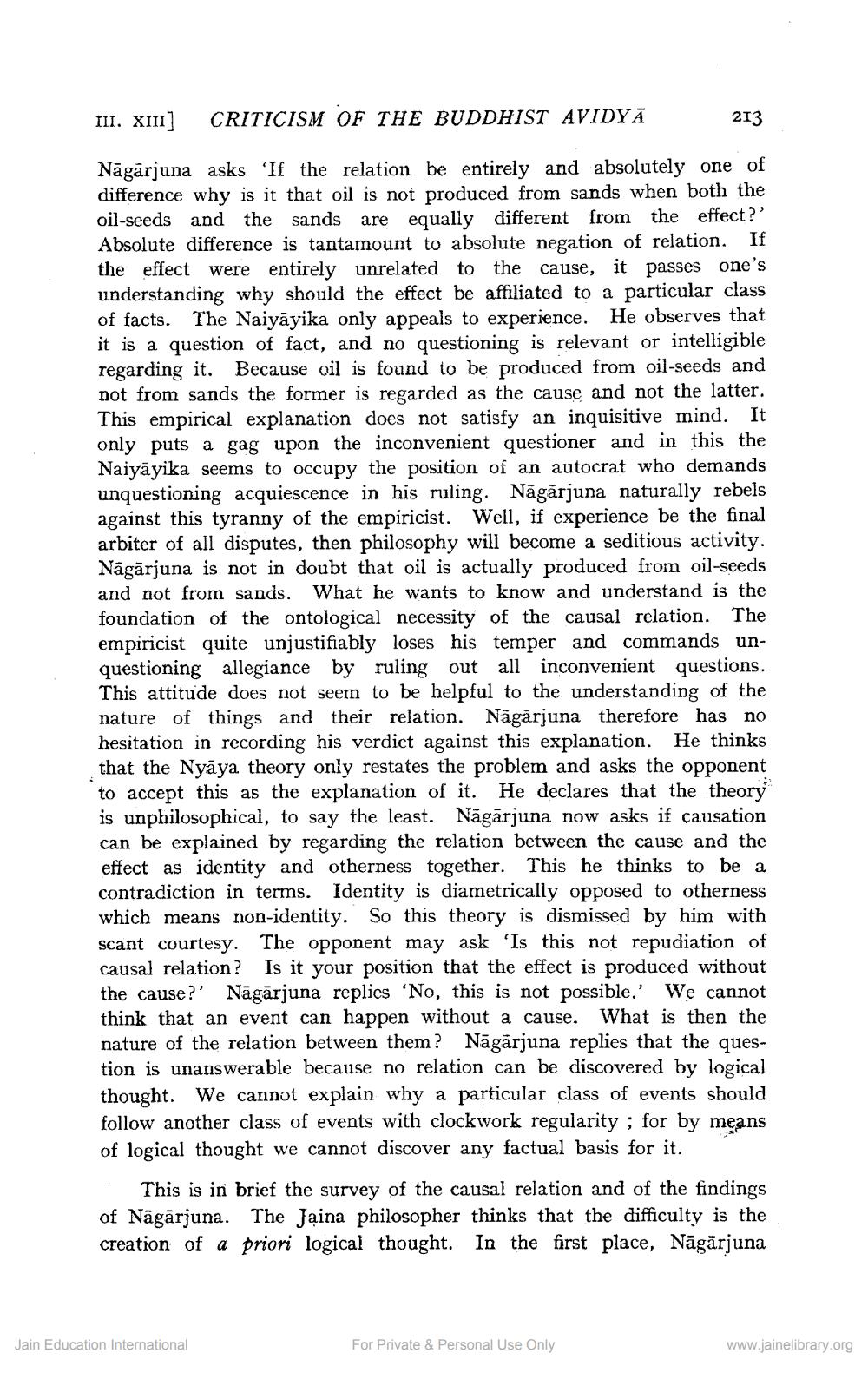________________
III. x11]
CRITICISM OF THE BUDDHIST AVIDYA
213
Nāgārjuna asks 'If the relation be entirely and absolutely one of difference why is it that oil is not produced from sands when both the oil-seeds and the sands are equally different from the effect?' Absolute difference is tantamount to absolute negation of relation. If the effect were entirely unrelated to the cause, it passes one's understanding why should the effect be affiliated to a particular class of facts. The Naiyāyika only appeals to experience. He observes that it is a question of fact, and no questioning is relevant or intelligible regarding it. Because oil is found to be produced from oil-seeds and not from sands the former is regarded as the cause and not the latter. This empirical explanation does not satisfy an inquisitive mind. It only puts a gag upon the inconvenient questioner and in this the Naiyāyika seems to occupy the position of an autocrat who demands unquestioning acquiescence in his ruling. Nāgārjuna naturally rebels against this tyranny of the empiricist. Well, if experience be the final arbiter of all disputes, then philosophy will become a seditious activity. Nāgārjuna is not in doubt that oil is actually produced from oil-seeds and not from sands. What he wants to know and understand is the foundation of the ontological necessity of the causal relation. The empiricist quite unjustifiably loses his temper and commands unquestioning allegiance by ruling out all inconvenient questions. This attitude does not seem to be helpful to the understanding of the nature of things and their relation. Nāgārjuna therefore has no hesitation in recording his verdict against this explanation. He thinks that the Nyāya theory only restates the problem and asks the opponent to accept this as the explanation of it. He declares that the theory is unphilosophical, to say the least. Nāgārjuna now asks if causation can be explained by regarding the relation between the cause and the effect as identity and otherness together. This he thinks to be a contradiction in terms. Identity is diametrically opposed to otherness which means non-identity. So this theory is dismissed by him with scant courtesy. The opponent may ask 'Is this not repudiation of causal relation? Is it your position that the effect is produced without the cause?' Nāgārjuna replies 'No, this is not possible. We cannot think that an event can happen without a cause. What is then the nature of the relation between them? Nāgārjuna replies that the question is unanswerable because no relation can be discovered by logical thought. We cannot explain why a particular class of events should follow another class of events with clockwork regularity ; for by means of logical thought we cannot discover any factual basis for it.
This is in brief the survey of the causal relation and of the findings of Nāgārjuna. The Jaina philosopher thinks that the difficulty is the creation of a priori logical thought. In the first place, Nāgārjuna
Jain Education International
For Private & Personal Use Only
www.jainelibrary.org




